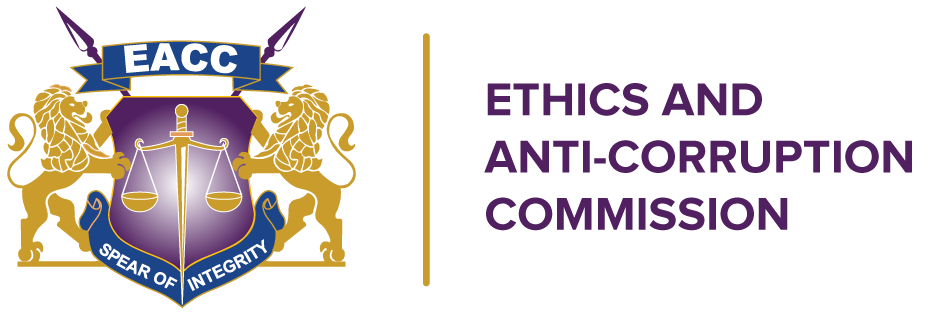Frequently Asked Questions
Share this page
Yes. Corruption is a phenomenon that involves both public organizations and private entities. EACC intervenes only in cases where public funds or public interest is at stake. In cases where only private interest is at stake, the parties are normally advised to refer the matter to the Police for investigation under the penal code or for adjudication as civil matters in courts of law. Bribery Act 2016 empowers EACC to investigate bribery in private sector.
Is there any remedy for a person who is dissatisfied with services of EACC?Yes. Anybody dissatisfied with the Commission’s services can seek redress by raising the issue with the Chairperson of EACC or by filing a complaint in court of law if a matter merits such action. The Justice and Legal Affairs Committee of Parliament is yet another avenue through which a remedy could be sought. In specific circumstances, remedy could be sought from other government oversight bodies such as Commission on Administrative Justice, Public Procurement Oversight Authority and Office of the Auditor General.
EACC is enhancing its national presence by opening more regional offices in order to monitor corruption at County levels in addition to the implementation of proactive county advisories focusing on strong systems and prudent use of public resources. EACC is also conducting public education and awareness programmes to enable ordinary Kenyans to proactively participate and oversight governance at County levels. A number of corruption reports from the Counties and other government oversight bodies are also under active investigations.
EACC is developing a baseline survey on the levels of corruption in the county governments to inform its interventions. With the transfer of resources to the Counties, there is a danger of corruption and unethical conduct taking root in those governments. Already there are reports by various government agencies, the media, civil society, and ordinary citizens which indicate misappropriation and imprudent use of resources within County governments.
EACC has continued to experience challenges in the form of limited finances and staff capacity, gaps in existing legal framework, a culture in Kenya that tolerates corruption, inadequate public participation in governance processes, weak accountability systems, a slow judicial process and inadequate coordination between justice sector agencies just to mention a few.
EACC works with other institutions to combat and prevent corruption through a number of strategies. These include: training and sensitization of staff, development of anti-corruption tools such as policies and codes of conduct, systems reviews, advisories, establishment of Corruption Prevention Committees, Integrity Testing Programmes and investigation of corruption and ethical breaches.
Yes. EACC is a Constitutional Commission that draws its budget from the exchequer. As such EACC is subject to the normal Government of Kenya audit requirements by the Office of the Auditor General.
Yes. The Constitution obligates the Commission to enforce the provisions of Chapter Six on Leadership and Integrity. This Chapter requires persons seeking public office to be selected on the basis of personal integrity, competence and suitability. To determine this threshold, the Commission is mandated to inquire into the conduct of such persons and make recommendations to the interested institutions. In this regard, members of the public are encouraged to provide information touching on the integrity of such persons to the Commission or any other body considering them for appointment or election to public office.
The law provides that a gift or donation given to a State or Public Officer on a public or official occasion is a gift or donation to the State and shall be surrendered to the State. However, the law provides exemptions when a State or a Public Officer may receive and retain a gift. These include: a gift given in ordinary bounds of courtesy and protocol, a gift of a non- monetary nature not exceeding the value prescribed by EACC and a gift from a relative or friend on an occasion recognized by custom.
The law expressly prohibits any gifts or hospitality given with the intention of compromising the integrity, objectivity or impartiality of the State or Pubic Officer. Some gifts such as jewellery, precious metal or stones, ivory or other animal part categorized as prohibited by law. The law obligates each public entity to maintain a register of gifts received and those given to other organizations.
Yes. The Commission receives many reports from members of the public. However, not all the reports fall within its mandate. All reports that disclose corruption, economic crime or unethical conduct are taken up for investigation or other administrative action by the Commission. EACC forwards any reports that fall outside its mandate to the appropriate bodies for relevant action.
Not found what you were looking for?
Write to us or call us on our toll free number
